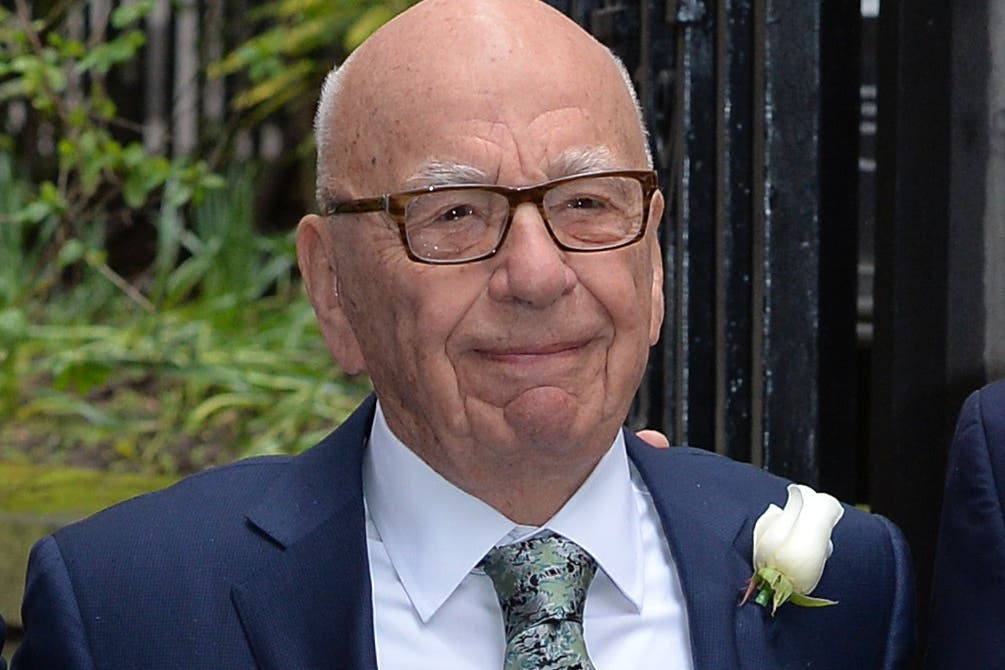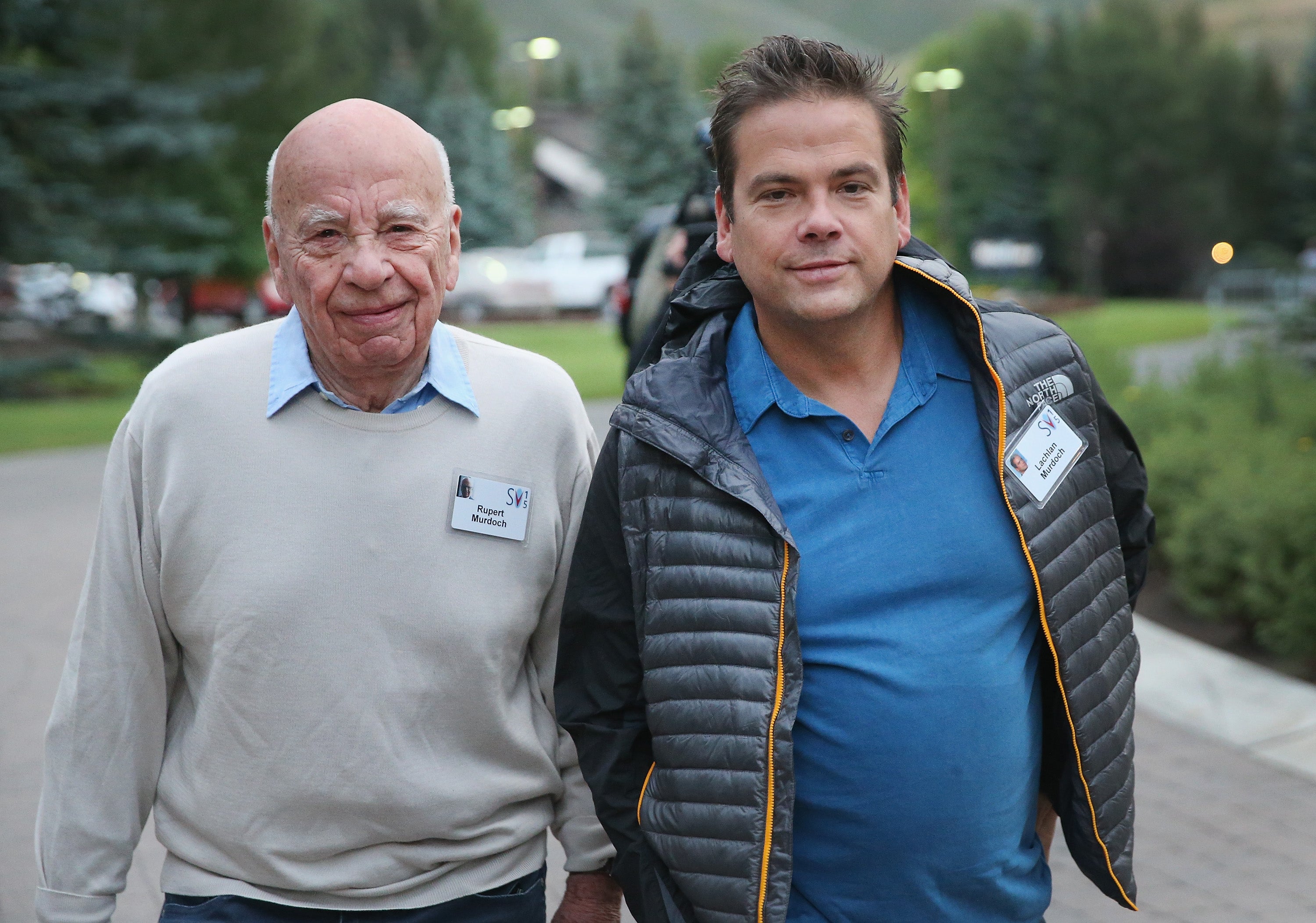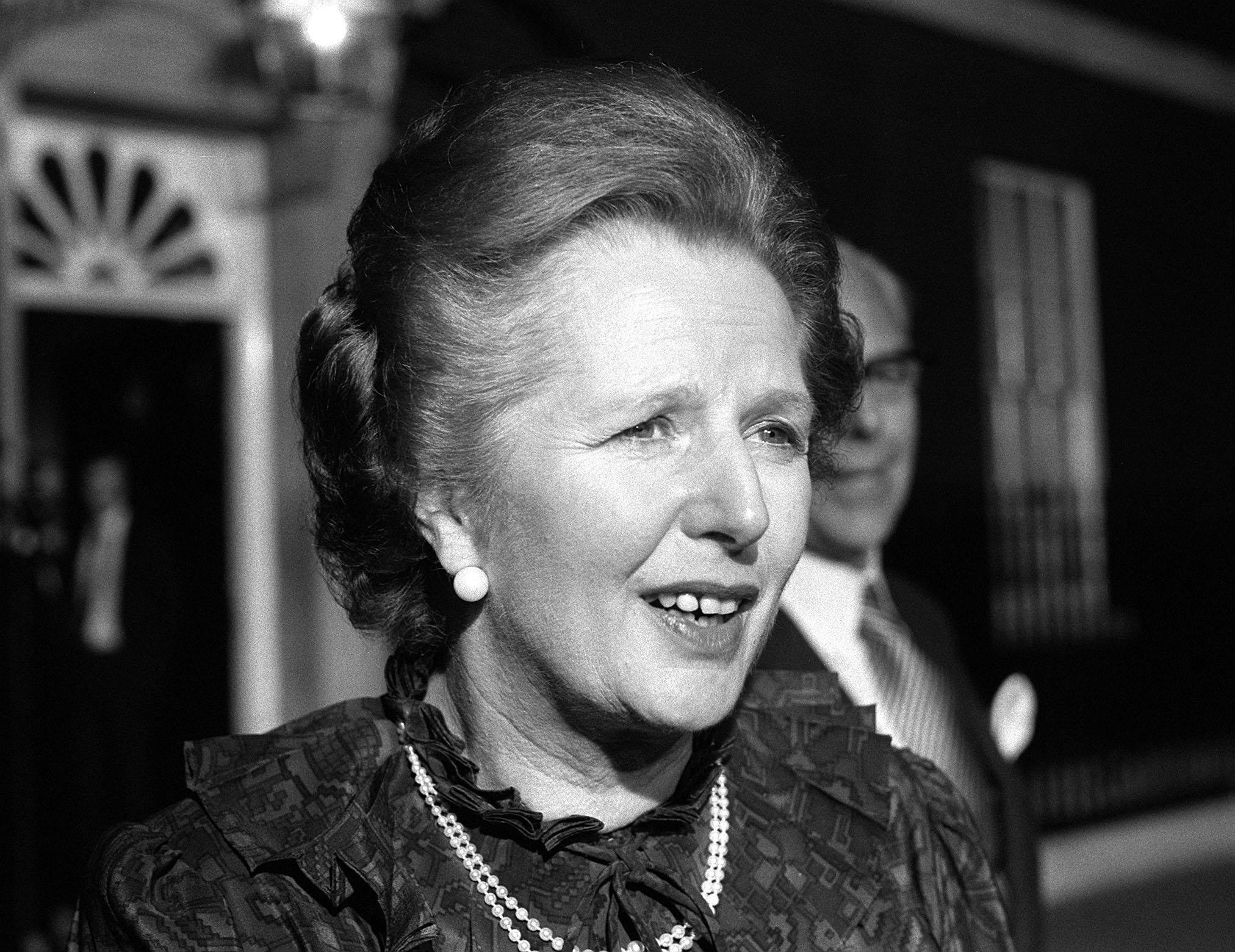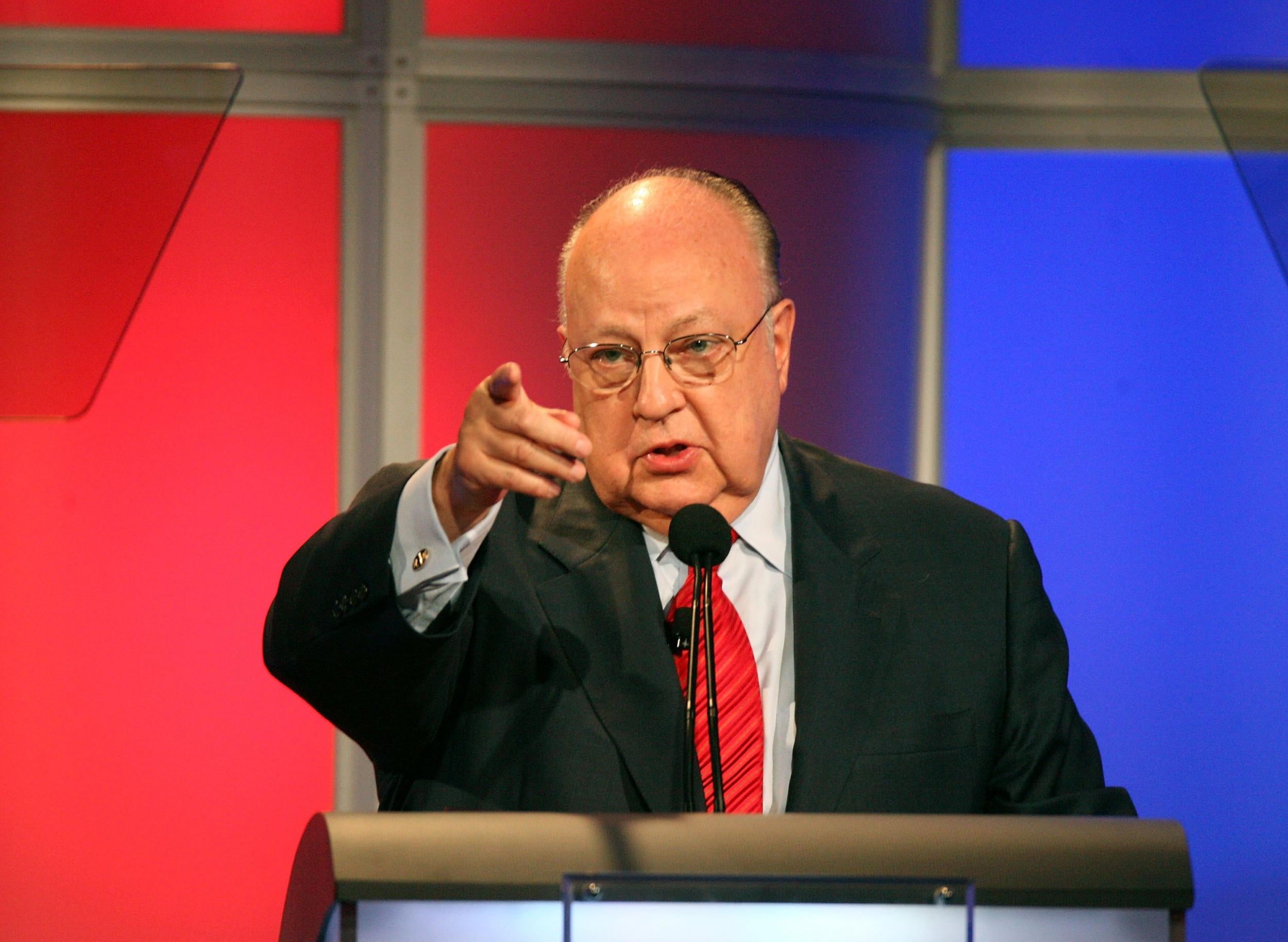Rupert Murdoch spent 70 years building the world’s most powerful media empire. Now, it enters a new chapter
The Australian-born mogul inherited a regional newspaper from his father before a global expansion saw him became one of the most powerful media executives in history, Bevan Hurley writes


Rupert Murdoch is stepping down as chairman of both Fox News’ parent company and News Corporation, ending a seven-decade reign in which he became arguably the most powerful media mogul in history.
From humble beginnings in his native Australia, the 92-year-old expanded his empire into television, films, and publishing across 50 countries as he amassed an estimated net wealth of $7.6bn.
He acquired hundreds of newspapers and news websites, and became a Hollywood film studio executive through the purchase of 20th Century Fox in 1985, before moving into his most influential sphere of cable news with the founding of his crown jewel Fox News in 1996.
Mr Murdoch had the ear of prime ministers and presidents, and his publications boasted of having the power to tilt elections in favour of right-wing candidates that were friendly to his business interests.
The popularity of Fox News and tabloid publications such as The Sun in the UK and the New York Post gave Mr Murdoch unparalleled sway over public opinion and right-wing politics.
His influence is widely associated with a coarsening of the public discourse and today’s hyper-polarised political environments in the United States, United Kingdom and further afield.
In a memo to staff on Thursday, Mr Murdoch announced he remained in robust health, and would continue as chairman emeritus of both companies.
“For my entire professional life, I have been engaged daily with news and ideas, and that will not change,” he wrote.
“But the time is right for me to take on different roles, knowing that we have truly talented teams.”
His son Lachlan has assumed sole chairmanship of both companies, ensuring his grip on politics and culture remains strong.
International expansion
Rupert Murdoch assumed control of his first newspaper, a regional newspaper named The News based in Adelaide, Australia, upon the death of his father Sir Keith Murdoch in 1952.
Within a few years, he rapidly expanded the nascent media business by buying up suburban and regional papers across Australia.

His first international expansion came in 1964, whenhe purchased The Dominion newspaper in New Zealand in a spontaneous move after learning it was for sale while on holiday there.
That same year he launched a national broadsheet newspaper The Australian.
In the late 1960s, Mr Murdoch made his first move into the United Kingdom with the purchase of the weekly tabloid the News of the World and then The Sun.
Mr Murdoch “invented the modern tabloid newspaper — a stew of sexual titillation, moral outrage and political aggression,” The Economist wrote in 2011.
The Sun rapidly expanded its circulation and readership under Mr Murdoch’s ownership, earning him the nickname “the Dirty Digger” for his muck-raking sex scandals.
He introduced the British tabloid tradition of running photos of topless women, which became known as the Page 3 Girl.
In 1981, Mr Murdoch bought his first British broadsheet The Times and sister publication the Sunday Times for $28m, calling it “the most exciting challenge of my life”.
Mr Murdoch went on to form a close bond with UK Prime Minister Margaret Thatcher.
When the Falklands War broke out with Argentina in 1982, The Sun became an unabashed booster of the war effort, running infamous headlines such as “Stick it up your Junta” and “Gotcha”, after the sinking of the General Belgrano warship which caused the loss of 323 Argentinian lives.

In the 1992 general election campaign, The Sun ran a relentless campaign against then-Labour leader Neil Kinnock. When the Conservative Party won an unexpected victory under John Major, the tabloid paper claimed credit the following day with the headline “It’s The Sun Wot Won It”.
He enjoyed close ties with subsequent prime ministers including David Cameron to Gordon Brown and current leader Rishi Sunak.
In his 2013 book Murdoch’s World, NPR media correspondent David Folkenflik wrote that the media impresario had succeeded in creating a “cannibalistic feral version of tabloid journalism”.
Mr Murdoch launched UK satellite pay-TV broadcaster Sky in 1989, before merging it with a major rival just a year later after a bruising price war.
Mr Murdoch’s companies also owned significant stakes in Britain’s BSkyB, SKY Italia, and Sky Deutschland
US expansion
In 1973, Mr Murdoch made his first foray into American publishing with the purchase of two newspapers in San Antonio, Texas. He soon turned the San Antonio News into a tabloid paper in the image of his UK publications.
The next year, he moved permanently to New York where he founded the long-defunct Star supermarket tabloid before buying the New York Post in 1976 from Dorothy Schiff.
After founding News Corporation in 1980, Mr Murdoch continued his buying spree, taking ownership of The Chicago Sun-Times, Village Voice and New York magazine at various times. He later sold the Post before buying it back in 1993.
In 1985, Mr Murdoch gave up his Australian citizenship to become a naturalised US citizen, removing an obstacle that prevented him from owning US television stations.
He purchased the Hollywood film studio 20th Century Fox, which formed the basis of his dominant broadcast and cable news division encompassing the Fox broadcast network, Fox Sports and FX.
The launch of Fox News in 1996, under longtime Republican political consultant Roger Ailes, saw the beginning of Mr Murdoch’s hold over right-wing politics.
The network brought rightwing conservative radio onto television screens for the first time.
Fox became the Number One rated cable news channel during the 2003 US invasion of Iraq, and has rarely relinquished its position ever since.

In addition to the hundreds of news publishing titles, Mr Murdoch’s News Corp also acquired full control of the book publishing house HarperCollins after a series of mergers in 1989.
A notable blunder came in 2005, when Mr Murdoch’s News Corp tried to cash in on the burgeoning world of social media with the purchase of MySpace for $580m. He would sell the site for just $35m in 2011.
In 2007, Mr Murdoch’s News Corp put in a takeover bid for Dow Jones & Company, which included the financial publication the Wall Street Journal. The Bancroft family, who had owned the company for more than a century, eventually agreed to a $5bn sale.
In 2019, News Corp sold 21st Century Fox to Disney for $71bn.
Mr Murdoch has featured prominently in popular culture, from an appearance in The Simpsons to being the inspiration for the HBO drama Succession.
Speaking about his new novel All The Demons Are Here, CNN anchor Jake Tapper said in a recent NPR interview that Mr Murdoch was the basis for the central character in the book.
He said the Post’s coverage of the Son of Sam serial killer in New York in 1977 spurred the rise of “clickbait journalism”.
While researching his new book, Mr Tapper realised his childhood fear of killer bees was due to Mr Murdoch’s tabloids over-hyping the danger — as he perfected the formula of making news about fear or rage.
Scandals
In 2011, Mr Murdoch’s News of the World became mired in the phone-hacking scandal after it emerged reporters had illegally accessed voice messages of politicians, royalty and even murder victims for stories.
The media mogul was forced to shut down the News of the World, and testified before a Parliamentary select committee that he was not responsible for what he called “sickening and horrible invasions”.
He called it “the most humble day of my life”.
During the 2016 US presidential election, Fox News became closely tied with the rise of Donald Trump as he surged to the GOP nomination.
When Ailes was forced out of the network in July 2016 after he was exposed as a sexual predator, Mr Murdoch stepped in to clean up, appointing himself as interim chief executive of the Fox News channel and Fox Business Network.
After Mr Trump’s victory in the general election, Fox News anchors such as Sean Hannity became cheerleaders for controversial policies such as a ban on foreign nationals from entering the US from seven Muslim-majority countries, and the child separation policy at the southern border.
Then in the aftermath of the 2020 presidential elections, Fox News peddled lies that Mr Trump had beaten Joe Biden, despite Mr Murdoch and prominent on-air personalities privately acknowledging he had lost.
The hatred stirred up by the false claims helped fuel the deadly insurrection at the US Capitol on January 6, 2021.
After Mr Biden’s victory, Fox’s top-rating primetime host Tucker Carlson veered increasingly into far-right conspiracy theories and amplified racist beliefs such as the “great replacement theory”.
The bogus claim, which several mass murderers have cited to justify their actions, asserts that Black and brown people are being brought into the United States and other Western countries to "replace" white voters.
As advertisers began to flee the network, Lachlan Murdoch expressed his full support for Carlson.
Fox would later pay out $787.5m to Dominion Voting Systems to settle a defamation lawsuit for knowingly spreading lies about the results, after a series of damaging revelations during pre-trial discovery.
Sporting revolutions
In 1993, the Fox Network gained exclusive rights for the NFL’s National Football Conference from CBS.
American football would become a mainstay of Fox’s broadcasting success.
In the United Kingdom, Mr Murdoch’s Sky network invested £300m ($369m) to secure the TV rights for the Premier League in the early 1990s, helping to turn it into the dominant football (soccer) league in the world.
In 1995, as rugby union was on the precipice of turning professional, Mr Murdoch watched as a 19-year-old New Zealand player Jonah Lomu demolished England in the semi-finals of the World Cup being held in South Africa.
He was so impressed that he invested $550m over the next 10 years for exclusive television rights for the three leading southern hemisphere teams of New Zealand, Australia and South Africa, thus ushering in the professional era.
Join our commenting forum
Join thought-provoking conversations, follow other Independent readers and see their replies
Comments


Bookmark popover
Removed from bookmarks